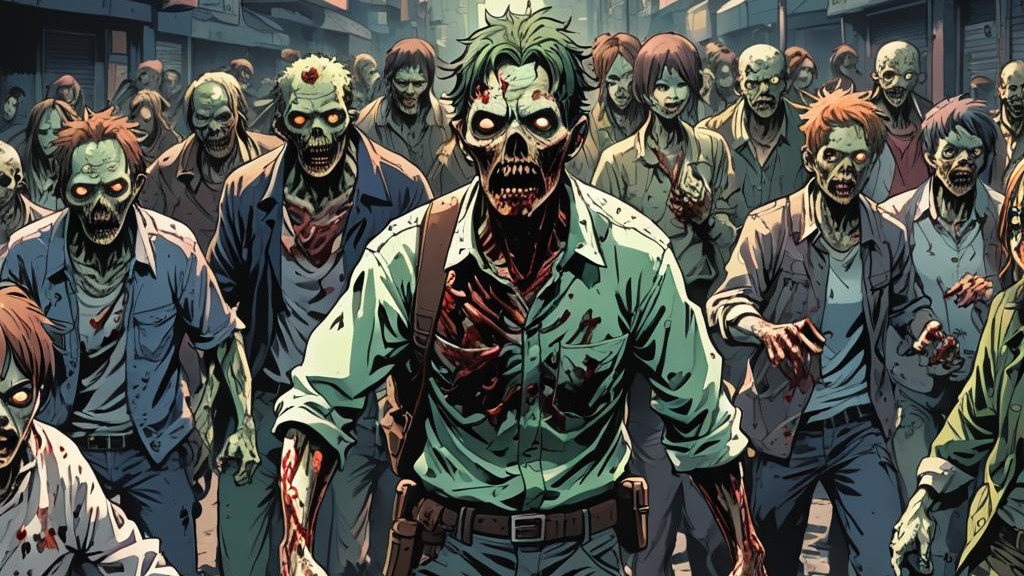
“Zomania: Escape from Tokyo” catapults viewers into a nightmarish scenario where survival becomes the ultimate goal amidst chaos and carnage. Directed by renowned anime filmmaker Hiroshi Kurosawa, this R-rated film delivers a relentless onslaught of action, suspense, and gore, as a group of Japanese high school students grapple with the harrowing aftermath of a biological attack on Tokyo.
Set against the backdrop of a bustling metropolis plunged into chaos, the film introduces us to a diverse cast of characters thrust into a fight for survival. Led by the determined and resourceful protagonist, Yuji, the students must navigate through the labyrinthine streets of Tokyo teeming with hordes of flesh-eating zombies. As they struggle to evade detection and overcome seemingly insurmountable obstacles, alliances are forged, betrayals are revealed, and the true nature of humanity is put to the test.
One of the film’s most striking features is its visceral and unflinching depiction of violence and gore. From gruesome zombie attacks to frenetic battles against the undead, “Zomania” pulls no punches in its portrayal of bloodshed and brutality. The animation is meticulously crafted to evoke a sense of dread and desperation, immersing viewers in a world where death lurks around every corner and no one is safe from the ravages of the apocalypse.
Yet, amidst the chaos and carnage, “Zomania” also offers moments of poignant reflection and character development. The students’ struggle to come to terms with the loss of their loved ones and the collapse of society adds depth and emotional resonance to the narrative. Themes of resilience, sacrifice, and camaraderie permeate the storyline, reminding us of the human capacity for courage and compassion even in the face of overwhelming adversity.
While the premise of a zombie apocalypse may seem familiar to fans of the genre, “Zomania” distinguishes itself with its uniquely Japanese setting and cultural nuances. The film explores themes of national identity, collective trauma, and the specter of war, drawing parallels to real-world geopolitical tensions and historical conflicts. Against the backdrop of a devastated Tokyo skyline, the film serves as a cautionary tale about the dangers of unchecked aggression and the fragility of peace.
However, “Zomania” is not without its flaws. Some viewers may find fault with the pacing, as the film occasionally struggles to maintain momentum amidst its relentless barrage of action sequences. Additionally, certain character arcs and plot twists may feel predictable or formulaic, detracting from the overall impact of the narrative.
In conclusion, “Zomania: Escape from Tokyo” is a pulse-pounding anime thriller that delivers thrills, chills, and plenty of gore for fans of the genre. While it may not break new ground in terms of storytelling or characterization, its gripping action and visceral visuals make for a compelling cinematic experience. With its blend of horror, drama, and social commentary, “Zomania” stands as a testament to the enduring appeal of apocalyptic fiction and the boundless creativity of Japanese animation.




